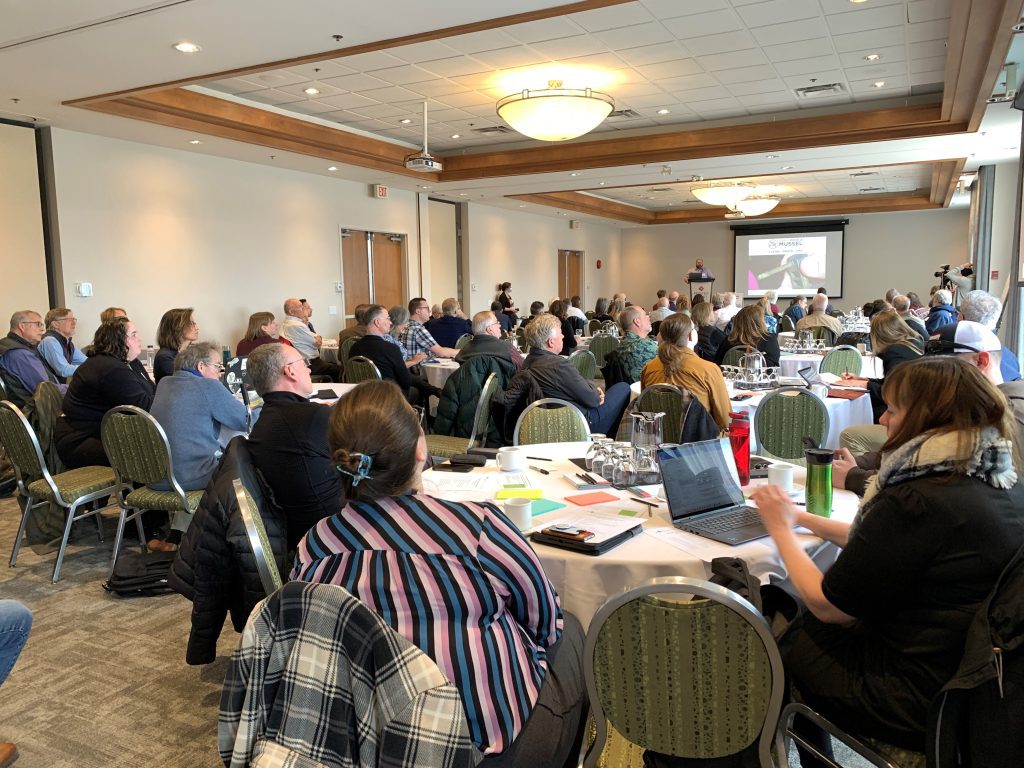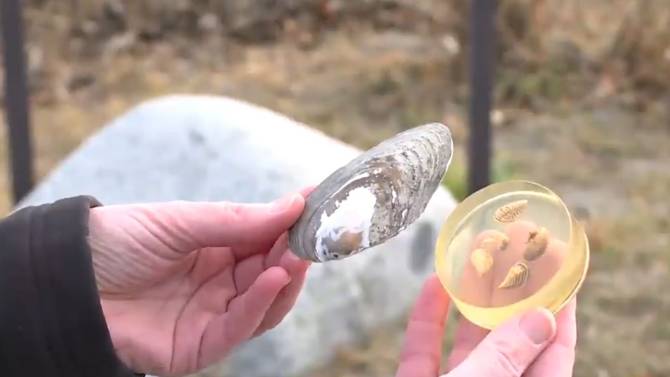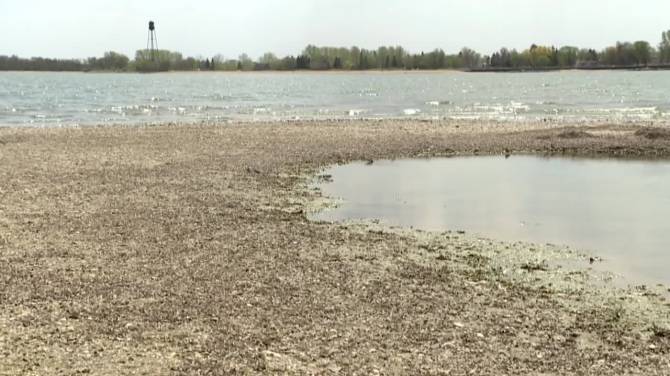Nearly 100 people gathered in Kelowna on Friday morning to talk about more ways to stop harmful mussels from getting into the region's waterways.
James Littley, deputy administrator with the Okanagan Basin Water Board (OBWB), said that this is the first time they have involved a wide range of people from various groups to increase awareness about the risk to the Okanagan.
The Quagga and Zebra mussels were first brought to the Great Lakes in 1988 and arrived in the West around 10 years ago.
Littley said that since then, these mussels have been spreading across North America, even reaching California and Nevada, despite initial beliefs that they could not cross the continental divide.
The mussels are now closer to B.C. and the Okanagan than ever before.
Littley mentioned that they were found last September in the Snake River in Idaho, which flows into the Columbia River just like the Okanagan river. This puts them in the shared water system and less than a day's drive from the Okanagan.
The invasive mussels have the potential to cause significant economic and environmental damage.
Littley emphasized that the risk is very high, as the water in the area is perfect for these mussels to thrive, and the region is a popular boating destination.
The primary way the mussels are spread is on boats when the vessels are not properly cleaned, drained, and dried.
Littley mentioned that the mussels can be carried in water or survive out of water for up to 30 days.
OBWB has been asking for mandatory inspections of all boats entering B.C., not just the ones that pass inspection stations, but the government has not made it mandatory yet.
This is the initial meeting of many to come, as stakeholders work on ways to keep the mussels away and prepare a regional response if they end up in the Okanagan.
Littley expressed that the longer they can delay them, the more they can do to get ready.
Stakeholders at the meeting shared the concerns of the OBWB.
Eve Layman from the Thompson Okanagan Tourism Association said that the impact would be significant and gave an example of the changes seen in Lake Winnipeg over just five years.
The Central Okanagan Economic Development Commission says the latest estimations of economic impact range from $42 million to $129 million annually.
Krista Mallory, manager of the Central Okanagan Economic Development Commission, believes that the projected impact is just the beginning and could have a significant effect on tourism, agriculture, infrastructure, and the overall appeal of the region to people and businesses.
The Ministry of Water, Land and Resource Stewardship stated in an email to Global News that the Invasive Mussel Defence Program is a top priority for the B.C. government, and they are urging the federal government to maintain or increase their support.
There were 43 inspectors managing six inspection stations and two mobile inspection crews in 2023, as reported by the ministry.
Due to reduced financial contributions from partners, B.C. had to temporarily move funds from other programs to sustain the Invasive Mussel Defence Program.
The Department of Fisheries and Oceans Canada announced a $8.75 million contribution over five years for the newly formed Aquatic Invasive Species and Prevention Fund (AISPF) in May 2023.
The AISPF provides funding for qualified organizations and projects dedicated to preventing the introduction and spread of aquatic invasive species across Canada.
The Department of Fisheries and Oceans recently revealed funding of up to $540,000 from 2023 to 2025 for the Habitat Conservation Trust Foundation (HCTF) to support B.C.'s ongoing Invasive Mussel Defense Program as part of the AISPF.
DFO also disclosed an investment of $90,000 to purchase two new decontamination trailers in B.C. to raise public awareness about the importance of cleaning, draining, and drying watercraft before moving between water bodies.
However, stakeholders believe that much more resources are necessary to prevent the invasive species from contaminating local waters.
Littley stated, “We need widespread support to show the government that it's much cheaper to prevent these species from entering our waters than dealing with them once they are here.”





